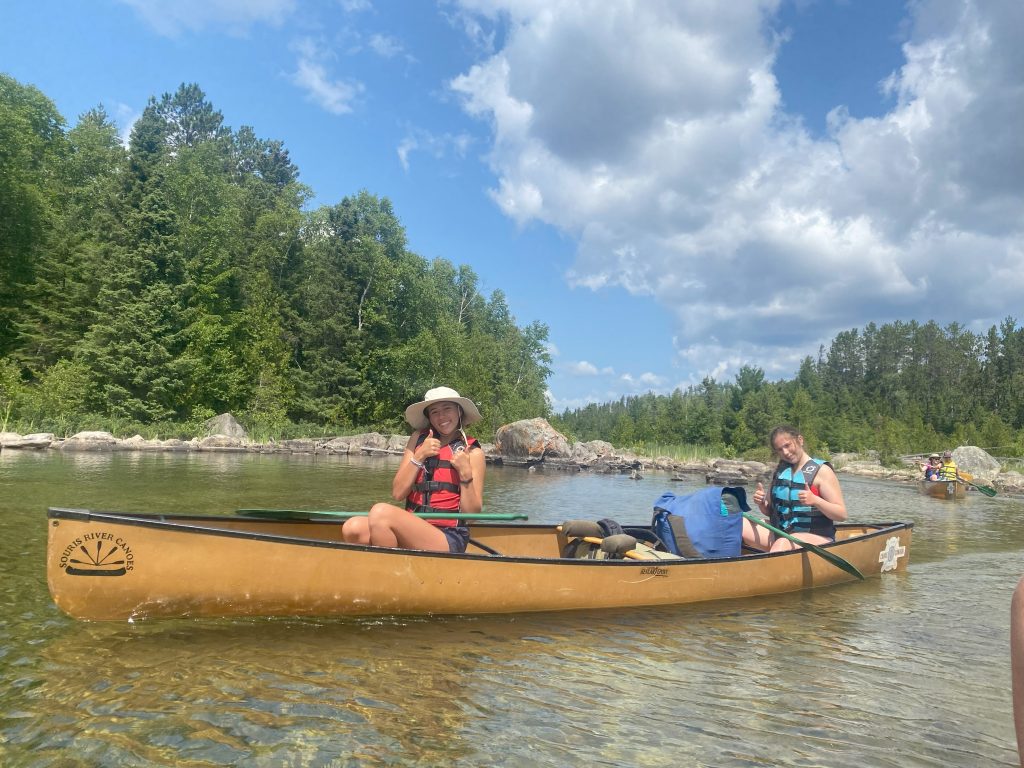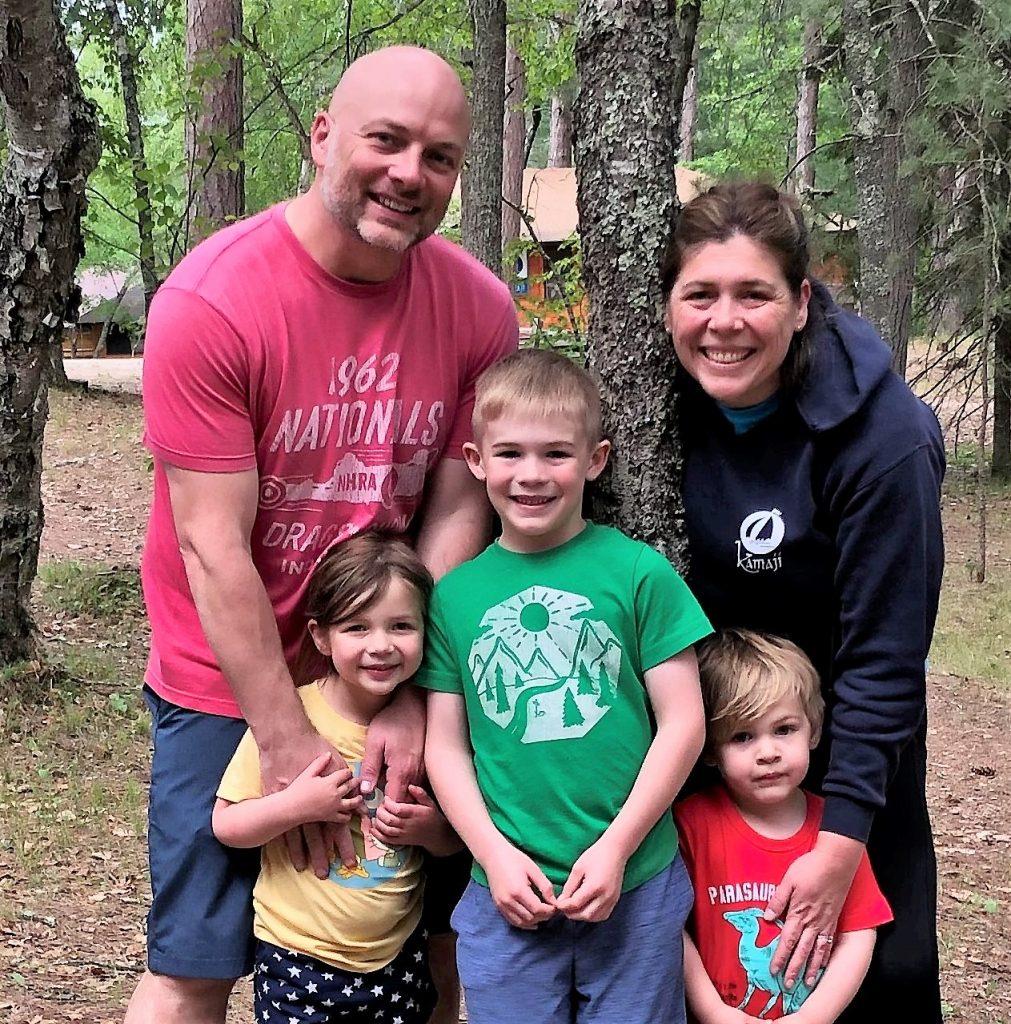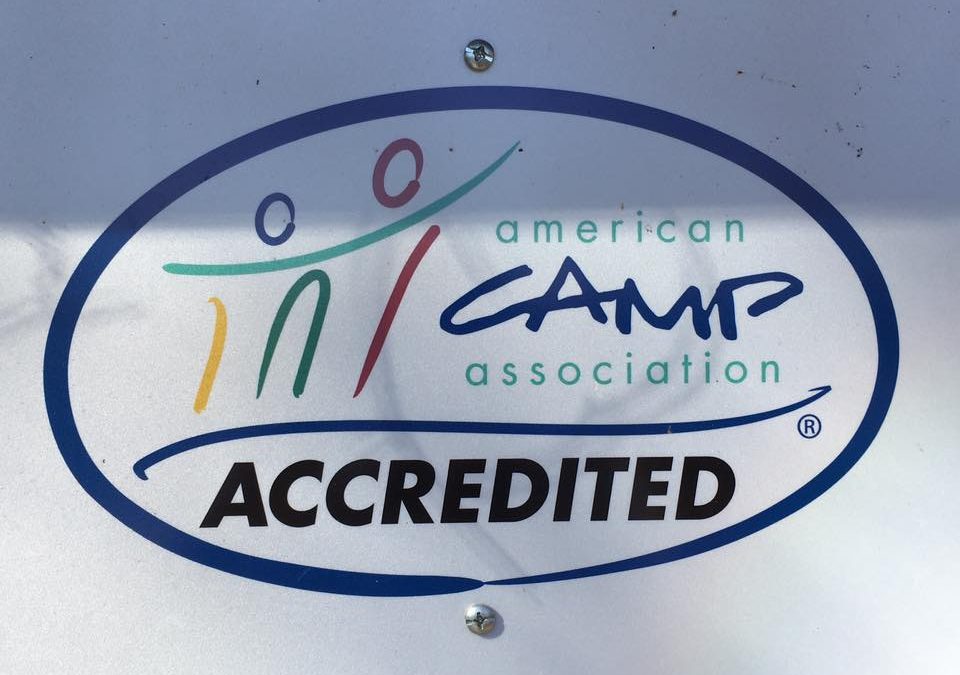What makes a camp safe and up to par? The American Camp Association actively ensures that camps meet stringent national health and safety standards through its accreditation process. This article provides a clear understanding of how ACA accreditation impacts the camp experience—valuable insights for parents and camp professionals alike – and why you should ask if your summer camp is ACA accredited.
Key Takeaways
- The American Camp Association (ACA) provides an accreditation program reinforcing high standards in safety, health, and program quality at over 2,400 camps, guiding camps beyond basic state licensing requirements.
- ACA-accredited camps signify a safe, nurturing, and educational environment, ensuring continuous improvement and alignment with current regulations and child needs, beneficial to both campers and camp operators.
- Parents can leverage ACA’s comprehensive resources, including the Camp Directory, educational materials, and partnerships, to select the right accredited camp for their child based on philosophical fit, program quality, and staff credentials.
Understanding the American Camp Association
As a pivotal player in the camp industry, the American Camp Association accredits more than 2,400 camps across the nation. The ACA’s mission is to enrich the lives of children, youth, and adults through the camp experience, a mission that resonates strongly within the camp community. ACA camps voluntarily commit to meeting stringent health and safety standards, demonstrating their dedication to providing a safe and nurturing environment for campers.
From directors to staff, camp professionals form the backbone of camp operations. Their role is paramount in executing the ACA’s mission and guaranteeing the delivery of top-notch camp programs. The ACA’s web site serves as a resource hub for these professionals, offering extensive information and support to educate camp owners and staff on best practices and current trends in the camp industry.

Campers canoeing at ACA-accredited Camp Kamaji in Minnesota
ACA’s Mission and Goals
Central to the ACA’s mission is the enhancement of young individuals’ self-identity, self-worth, and self-esteem. This is achieved through experiential education and a range of camp programs designed to enhance personal growth and foster key attributes like leadership and self-respect. The ACA’s comprehensive approach to child development is encapsulated in the four ‘C’s’: compassion, contribution, commitment, and character, which are at the heart of every ACA-accredited camp experience.
Moreover, the ACA is not alone in its mission. It collaborates with various organizations to support the cause of providing quality camp experiences and to reinforce the importance of camps in child development. This network of partnerships bolsters the ACA’s mission, extending its reach and impact in the camp industry and beyond.
The Importance of ACA Accreditation
ACA accreditation stands as a robust testament to a camp’s dedication to safety and quality. At the top of the list of questions parents have about camp, is safety and preventative measures. Camps that achieve accreditation voluntarily exceed basic state licensing requirements, adhering instead to the ACA’s stringent national standards. This accreditation process includes a rigorous safety audit that extends beyond state regulations, offering parents peace of mind about camp safety. In fact, voluntary accreditation assures parents that the camp is committed to maintaining the highest standards in the industry. As part of the accreditation, camps complete a yearly re-accreditation process online and a more intense process on-site every 5 years. It is not enough simply to be an ACA-member camp but to ask about being accredited because those camps who are accredited have met the stringent standards set forth by this qualifying institution.
Accredited camps use their status to market themselves, utilizing the trust associated with ACA’s high standards. The accreditation status of camps is prominently featured in the ACA’s camp directory, signaling to parents the camp’s commitment to accountability and adherence to recognized standards. This trust and reassurance make the accredited camp experience a preferred choice for many parents.
The ACA Accreditation Program: Ensuring a Safe and Quality Camp Experience

Camp staff conducting lifeguard safety training at Camp Kamaji, MN
The ACA Accreditation Program signifies a camp’s dedication to offering a safe and high-quality camp experience. This voluntary, peer-review system ensures that camps meet industry-established standards, particularly in health, safety, and program quality. The accreditation process is designed not only to validate camp practices but also to educate camp owners and directors on best practices in camp operations.
The ACA’s commitment to continuous improvement is evident in the continual evolution of its accreditation standards. These standards are regularly updated to keep pace with changes in laws, regulations, and the needs of campers and their families, ensuring that ACA-accredited camps remain at the forefront of safety and quality in the camp industry.
Key Components of the ACA Accreditation Process
The ACA accreditation process explores various critical facets of camp operation. It evaluates program design and implementation, ensuring that camp programs align with their mission and philosophy and provide tailored experiences for campers. Health and safety protocols are a critical part of the process, with camps required to adhere to strict guidelines including maintaining health records, implementing emergency healthcare plans, and ensuring food and water safety.
Risk management is another critical component, involving incident reporting, analysis, and insurance coverage. Additionally, ACA standards require camps to employ staff with proper qualifications for various roles, show proof of first-aid certification for activities, and demonstrate that staff undergo criminal background checks and receive job-specific training. These comprehensive safety and security regulations ensure that ACA-accredited camps provide a safe and nurturing environment for every camper, as regulations address basic sanitation. By implementing a rigorous risk management process, camps can further enhance their safety measures.
Benefits of ACA Accredited Camps
Opting for an ACA-accredited camp brings a plethora of benefits. These camps:
- Meet national standards and go beyond basic state licensing requirements
- Offer healthy, developmentally appropriate activities and experiential learning
- Foster personal growth and leadership in campers
- Are part of a larger camp community, sharing knowledge, experiences, and connections within the ACA network
Moreover, ACA accreditation brings with it tangible benefits for the camps themselves like access to ‘Camp quality assessment toolkit’ for quality evaluation and improvement, accreditation brings value to the camp and enhances the camp experience for participants.
Selecting the Right ACA Accredited Camp for Your Child

Kamaji campers participating in outdoor camp activities at
Choosing the appropriate ACA-accredited camp for your child extends beyond just safety and quality. It’s also about ensuring a positive and enriching experience that aligns with your child’s interests and developmental needs. This process involves assessing the camp’s quality camp program, including its:
- Philosophy
- Programs
- Staff
- Facilities
It’s about asking the right questions, understanding what makes each camp unique, and finding the right fit for your child.
Parents hold a key role in equipping their children for a positive camp experience. Here are some tips to help you prepare your child for camp:
- Ensure your child is mentally, emotionally, and physically prepared for camp.
- Discuss potential challenges such as homesickness and how to cope with them.
- Set realistic expectations for your child’s camp experience.
- Resolve any apprehensions you have before camp starts.
- Consider using the time for personal activities.
By following these tips, you can help your child have a successful and enjoyable camp experience. More tips and tricks can be found here: How Can I Prepare my Daughter for Sleepaway Camp
Assessing Camp Philosophy and Programs
Comprehending a camp’s philosophy is vital to finding a good fit with your family values and your child’s learning approach. It helps you gauge whether the camp fosters key values such as human connections and environmental stewardship and aligns with your family’s beliefs. Camps offer varied programs that may focus on competition or cooperative learning. Selecting the right program can play a key role in achieving goals for your child’s development aligned with their personality and developmental stage.
Moreover, understanding the camp’s operational styles can give you insight into how behavioral issues are managed and whether the camp is equipped to handle special needs and the overall comfort of your child. Having a clear understanding of the benefits of the camp experience, like fostering independence and confidence, can help set realistic expectations for your child’s time at camp, especially if the camp follows a behavior management guidelines program.
Evaluating Camp Staff and Facilities
The caliber of camp staff and facilities can greatly influence your child’s camp experience. ACA guidelines recommend that camp staff meet certain age requirements, with 80% or more being at least 18 years old, and all staff being at least two years older than the campers they supervise. Camp directors should have a minimum of two seasons of prior administrative camp experience, complete annual in-service training, and be at least 25 years old.
In addition to these qualifications, ACA standards require that counselors receive training in:
- Safety
- Emergency responses
- Behavior management
- Preventing child abuse
Evaluating these aspects can give you confidence in the camp’s ability to provide safe and nurturing environments for your child. A high return rate of staff might denote a stable and positive work environment, contributing to consistent quality in the camp experience.
Collaborative Relationships between the American Camp Association and Other Organizations
Through partnerships with diverse organizations and government regulators, the ACA strengthens its influence and efficacy. These partnerships enhance the quality of camp experiences and reinforce the importance of camps in child development. The ACA collaborates with medical professionals from the American Academy of Pediatrics and emergency experts from the American Red Cross, benefiting from their expertise to establish updated and research-based standards for camp operations.
The ACA also engages with legislative and regulatory advocacy through public policy initiatives. By working closely with government regulators, the ACA heightens understanding of the impact of camps and advocates for financial support to sustain and improve camp experiences.
Partnerships with Youth-Serving Agencies
The ACA’s alliances with youth-serving agencies are vital in refining camp programs and boosting youth development. Collaborations with organizations like 4-H and Y-USA help to improve the camping experience and provide enriching camp programs. The alliance with Y-USA extends to a commitment to ACA accreditation for all YMCA camps and collaboration on advocacy and policy for the safety of campers and staff.
Other partnerships include:
- The Alliance for Camp Health, which provides educational resources aimed at creating healthier camp communities
- CampDoc, which offers ACA-backed services like electronic health records to underscore the commitment to camper health and safety, as well as transportation safety health care
- Camp HOPE America and the JCC Association, striving for high-quality program delivery and trauma-informed care
Working with Government Regulators
The ACA’s engagement with government regulators helps to support public policy initiatives and provides resources to enhance interaction between camps and government bodies. The ACA collaborates with state camp associations and engages in public policy initiatives to tackle various issues pertinent to camp operations. It provides expertise in developing model state guidelines for overnight camps and lobbies for financial support to sustain and improve camp experiences.
Through events such as ACA Camp Hill Days, the ACA actively educates elected officials on the societal benefits and local community impacts of camps. To enhance the interaction between camps and government bodies, the ACA provides resources such as advocacy toolkits, guides for inviting officials to camps, and up-to-date state operating guidance.
Tips for Parents: Navigating the ACA’s Resources

Campers and staff together enjoying summer at Camp Kamaji, MN
The ACA provides many resources aiding parents in making well-informed decisions regarding camp participation. These resources include:
- The comprehensive Camp Directory
- Insightful articles
- Webinars
- Parent education programs
These resources can guide parents in selecting the best summer camp for their children and preparing them for a positive camp experience: Fun & Safety: ACA-Accredited Camps Set the Standard
Understanding and effectively utilizing these resources can make the process of selecting a camp less daunting and more rewarding. Whether you’re looking for a specific type of camp or trying to understand the benefits of a camp experience, the ACA’s resources can provide the information and support you need.
Using the ACA’s Camp Directory
The ACA’s Camp Directory is a comprehensive online resource that lists ACA-accredited camps, helping parents find programs that meet professional standards of health, safety, and program quality. The ‘Find a Camp’ database provides visibility to accredited camps, facilitating parents in discovering quality camp options for their offspring.
The Camp Directory’s search function allows parents to sift through camps based on various criteria like:
- location of ACA accredited camps
- activities
- type of camp
- session lengths
- other crucial factors suited to their child’s needs
This tool can significantly simplify the process of finding a camp that aligns with your child’s interests and your family’s preferences.
(We’re clearly biased, but we think choosing a Minnesota Summer Camp is a great choice for your daughter! She’ll love the warm summer days and cool evenings by the fire)
Accessing Additional Resources and Support
Beyond the Camp Directory, the ACA website presents many articles and educational materials on subjects including camp readiness, child development, and safety. These resources can help parents make informed decisions about camp participation. The ACA also provides webinars and parent education programs that offer valuable insights into the benefits and outcomes of camp experiences, including how to prepare children for a positive experience.
These resources are complemented by tools for parent support, including a checklist for camp readiness and questions to consider when selecting a camp. These tools can assist parents in evaluating potential camps, preparing their child for camp, and ensuring a positive and enriching camp experience.
Summary
The American Camp Association plays a pivotal role in ensuring a safe and enriching camp experience for children across the nation. Through its comprehensive accreditation program, collaborative relationships with youth-serving agencies and government regulators, and a wealth of resources for parents, the ACA supports the development of children, youth, and adults through the camp experience. By choosing an ACA-accredited camp, parents can have peace of mind knowing their child is in a safe and nurturing environment where they can grow, learn, and create lifelong memories.
Frequently Asked Questions
What does the American Camp Association do?
The American Camp Association (ACA) promotes safe and healthy camp experiences for all families by providing research, education, and training. This allows children to thrive in their camp experiences.
What is camp accreditation?
Camp accreditation ensures that a camp has met up to 300 standards covering staff qualifications, training, and emergency management, offering an assurance of quality and safety for campers.
Camp Kamaji is proud to be an accredited member in good standing of the American Camping Association (ACA).
Here is one of the most common questions we get from new camper families: “How do I prepare my daughter for summer camp?”
Interested in finding out if Camp Kamaji is a great fit for your daughter this summer? Book a zoom call with Kat (Camp Kamaji co-owner and alumni!)

Jason & Kat with their family – owners, directors and “mom and pop” of Camp Kamaji

